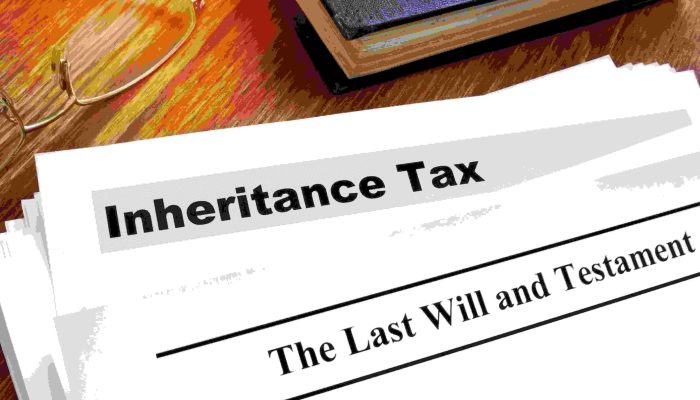Inheritance Tax Planning for Families with US and UK Property
Courtney Griffiths
November 11, 2024
Inheritance tax planning becomes complex when families hold property in multiple countries, such as the US and UK, due to differing tax rules and regulations. Owning assets in both jurisdictions presents unique challenges, but proper planning can help minimize the tax burden for beneficiaries and prevent legal complications. This blog covers key aspects of inheritance tax planning for families with property in both the US and UK, and outlines strategies to mitigate tax liability and protect wealth.
Understanding Inheritance Tax in the US and UK

To effectively plan for inheritance tax, it’s essential to understand the inheritance tax (IHT) and estate tax systems in both countries.
1. Inheritance Tax in the UK
In the UK, inheritance tax (IHT) is levied on the estate of a deceased person, with the standard rate set at 40% on assets exceeding the threshold known as the “nil-rate band.” As of 2024, the nil-rate band is £325,000 per person. The tax applies to the worldwide estate for UK-domiciled individuals, and only to UK-situated assets for non-domiciled individuals.
In addition to the nil-rate band, the UK offers a “residence nil-rate band,” which can be as much as £175,000 if the family home is passed on to direct descendants, such as children or grandchildren. Certain exemptions and reliefs can also help reduce the overall inheritance tax burden, such as business property relief and agricultural relief.
2. Estate Tax in the US
The US imposes an estate tax on the worldwide assets of deceased US citizens or residents. Estate tax rates range from 18% to 40%, with the federal exemption for 2024 set at $12.92 million. This means that estates below this threshold will not be subject to estate tax. However, non-US citizens are only subject to estate tax on US-situs assets, including real estate located in the US and certain financial accounts.
The US also has an unlimited marital deduction, allowing spouses to inherit assets from each other without triggering estate tax—provided both spouses are US citizens. For individuals with international investments, understanding tax reporting obligations is equally important. If you have foreign assets, you may need to comply with reporting requirements in other jurisdictions. For instance, UK taxpayers should be aware of how to report foreign investments to HMRC, ensuring compliance with tax regulations beyond the US.
The Importance of Domicile and Residency
Both domicile and residency play a critical role in determining which country’s inheritance tax rules apply.
Domicile in the UK: Domicile is a legal concept that determines a person’s permanent home, which has significant tax implications in the UK. Even if someone lives abroad, they may still be considered UK-domiciled for tax purposes, depending on factors such as the length of time spent in the UK and their intentions to return.
Residency in the US: US residency is generally determined by physical presence or the intention to remain. US citizens and permanent residents (green card holders) are subject to estate tax on their worldwide assets, while non-residents are only taxed on US-situs assets.
Double Taxation and the US-UK Estate Tax Treaty
One of the major concerns in cross-border inheritance tax planning is the potential for double taxation, where both the US and the UK impose inheritance or estate taxes on the same assets. To avoid this, the US and UK have a tax treaty that helps alleviate double taxation:
Tax Credits: The treaty allows for tax credits that offset taxes paid in one country against those owed in the other, reducing the overall tax liability.
Tiebreaker Rules for Domicile: The treaty also provides tiebreaker rules to resolve situations where both countries claim jurisdiction over an individual’s estate, clarifying which country’s inheritance tax rules take precedence.

Strategies for Inheritance Tax Planning
Proactive planning is essential to reduce inheritance tax liabilities and protect family wealth. Here are some strategies for families with property in both the US and UK:
Utilize Tax Reliefs and Exemptions
Taking advantage of available exemptions and reliefs in both countries can significantly reduce the inheritance tax burden:
- US Lifetime Gift Tax Exemption: The US allows individuals to make lifetime gifts up to a certain amount without incurring gift tax. For 2024, the lifetime gift and estate tax exemption is $12.92 million. Gifting assets during one’s lifetime can help reduce the taxable estate.
- UK Nil-Rate Bands and Reliefs: Using the nil-rate band, residence nil-rate band, and other reliefs can help minimize UK inheritance tax. Transferring business or agricultural property may qualify for reliefs that reduce the taxable value of the estate.
Establish Trusts
Trusts can be a powerful tool for inheritance tax planning, providing control over asset distribution while potentially reducing tax liabilities:
- US Trusts: Setting up a trust in the US can help keep assets out of the taxable estate. Grantor trusts, irrevocable life insurance trusts, and charitable remainder trusts are commonly used for tax planning.
- UK Trusts: Trusts can help minimize inheritance tax in the UK by reducing the value of an estate subject to tax. However, the UK imposes its own rules on trust taxation, so careful structuring is necessary to avoid unexpected tax liabilities.
Consider Domicile and Residency Status
Managing domicile and residency status can help optimize inheritance tax planning:
- Change of Domicile: For individuals living abroad who do not wish to be considered domiciled in the UK for tax purposes, taking steps to establish domicile elsewhere can reduce exposure to UK inheritance tax.
- US Estate Tax Planning for Non-Residents: Non-residents with US-situs assets can use planning techniques like holding property through a foreign corporation or trust to reduce estate tax exposure.
Marital Planning
For families with mixed US-UK citizenship, marital planning can help reduce the tax impact:
- Qualified Domestic Trusts (QDOTs): A QDOT can help US citizens pass assets to non-US citizen spouses without immediate estate tax, deferring the tax until distributions are made from the trust.
- UK Spouse Exemption: In the UK, transfers between spouses are generally exempt from inheritance tax, provided both spouses are UK-domiciled. If one spouse is domiciled elsewhere, only a partial exemption may apply.
Leverage Life Insurance
Life insurance can be used to cover anticipated inheritance tax liabilities, providing liquidity to pay taxes without forcing the sale of family assets:
- UK Inheritance Tax Insurance: Policies specifically designed to cover inheritance tax can ensure that beneficiaries receive the intended inheritance without being burdened by tax bills.
- US Irrevocable Life Insurance Trust (ILIT): Placing life insurance in an ILIT keeps the policy proceeds out of the taxable estate, potentially reducing the estate tax liability.
Navigating Legal and Financial Complexities
Inheritance tax planning for families with property in both the US and UK requires careful coordination between legal and financial advisors in both countries. An international estate planning attorney and a tax advisor can help structure assets and estate plans to comply with the rules in both jurisdictions.
Final Thoughts
Inheritance tax planning for families with property in the US and UK presents unique challenges, but with proactive strategies, it’s possible to reduce tax exposure and preserve wealth for future generations. Understanding the tax rules in both countries, utilizing available reliefs and exemptions, and engaging in careful planning around domicile, trusts, and marital strategies are key steps in effective inheritance tax planning.
Proper planning not only ensures tax efficiency but also provides peace of mind that your family’s financial legacy is protected, regardless of the complexities of cross-border taxation.
As 5th April 2025 UK law is changing in regards to inheritance tax and the content of this article will superseded. Make sure that you take advice from a tax advisor before doing any planning.
Complex Cross-Border Tax Rules? We’re Here to Help
Ensure your estate plan is tax-efficient and legally compliant.
Have Any Question?
Consult Our Expert Tax Consultants for your Cross-Border Taxes!
- +44 (0)2034354425
- info@harrisonswift.com
Categories
Frequently Asked Questions
Yes, the residency status of both the trustee and beneficiaries can significantly impact the tax treatment. The location of the trustee can determine the jurisdiction under which the trust is taxed, and the residency status of beneficiaries may affect their personal tax obligations. It's essential to consider residency rules in both the U.S. and the UK to determine the applicable tax laws and potential credits available for foreign taxes paid.
Changes in U.S. tax laws can have a direct impact on UK taxpayers with assets in a U.S. Trust. Shifts in tax rates, deductions, or other provisions may alter the overall tax liability for individuals and trusts. UK taxpayers should stay in contact with professionals to get informed about U.S. tax law changes, as these adjustments can influence their financial planning strategies and necessitate adjustments to their trust structures or distribution plans.
A U.S. Trust can play a significant role in the estate planning strategy for UK taxpayers with cross-border interests. It offers potential benefits such as asset protection, efficient wealth transfer, and continuity of wealth management. However, careful consideration must be given to how the trust aligns with the overall estate plan, including the interaction with UK inheritance tax rules, family dynamics, and long-term financial goals.
Yes, there is a risk of double taxation on income generated by a U.S. trust for UK taxpayers. To mitigate this risk, taxpayers can leverage mechanisms such as tax credits, deductions, or provisions in the U.S.-UK double taxation treaty. Proper structuring of the trust, strategic financial planning, and seeking professional advice are crucial steps to minimise the impact of double taxation and ensure compliance with both U.S. and UK tax laws.
UK taxpayers should be mindful of various legal and regulatory considerations, including compliance with U.S. and UK trust laws, anti-money laundering regulations, and reporting requirements. Engaging legal professionals who specialise in cross-border estate planning and trusts can help ensure that the establishment and management of the U.S. Trust align with applicable laws, minimising the risk of legal issues and penalties.
Our Blog
Latest Blog & Articles
The New “Digital Nomad”: Working Across Borders and the US/UK Tax Traps
The New “Digital Nomad”: Working Across Borders and the US/UK Tax Traps Muhammad Zeeshan June 11, 2025 Tax In...
Setting Up a UK Business as a US Person: Legal Entity Pitfalls
Setting Up a UK Business as a US Person: Legal Entity Pitfalls Muhammad Zeeshan June 11, 2025 Tax For...
Phantom Gains: When FX Movements Create Unexpected Tax Bills
Phantom Gains: When FX Movements Create Unexpected Tax Bills Muhammad Zeeshan June 11, 2025 Tax For many US/UK taxpayers,...



